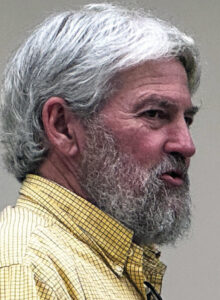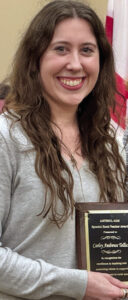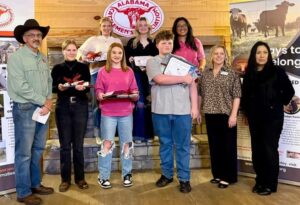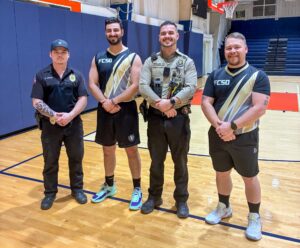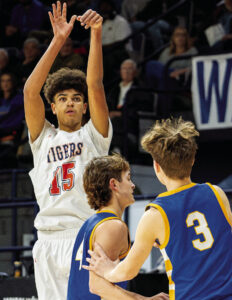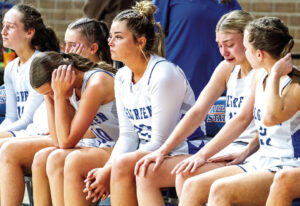In my own words… My hero, my father
By Staff
June 17, 2001
My father stands in the middle of the most reproduced photo in the history of photography. His bronze figure towers 35 feet tall in Arlington. John Bradley was one of the men who raised the flag on Iwo Jima. But growing up with him that is about all I knew. He would always change the subject.
After his 1994 funeral I asked my mother to tell me everything he told her about the flag-raising. That won't take long,'' Mom chuckled. He only talked about it once. On our first date. For seven or eight disinterested minutes. Then never again in a 47-year marriage did he say the words 'Iwo Jima.'''
On this Fathers Day I cannot study my father's words regarding fatherhood. So I can only reflect upon his actions. And if actions speak louder than words, John Bradley left some thunderously clear lessons.
Young John wore hand-me-downs from his older brother who got them as hand-me-downs from his cousin. As a boy my dad gave his paper-route money to his parents. His comfort food was rice-and-hamburger-stuffed cabbage leaves. His father shoveled coal. His mother taught religious John to fold his hands in prayer: Blessed Mother help us.''
One foot at a time
Little John rode boxcars to the swimming hole. His favorite radio program was Jack Armstrong, All American Boy.'' He confessed his sins once a month. His worse curse-word was Dad-Gum.''
At 19, John Bradley saw his first mountain at a Navy boot camp high in Idaho. On D-Day at Iwo Jima he landed just 400 yards from hulking Mt. Suribachi. It took my father four days to slog that bloody 400 yards of death.
I discovered John Bradley was a hero among heroes. Iwo Jima is the single most heroic month in American history. My father's Navy Cross lauds his extraordinary heroism'' in saving a wounded man's life. John Bradley ran through the intense fire to the side of the fallen Marine with complete disregard for his own safety.''
I thought I was sending them to their deaths,'' admitted the Marine captain who ordered my dad up Mt. Suribachi. My dad made it up that hill by putting one foot in front of the other. Later he lent some guys a hand'' with a flagpole.
So there he is, an exhausted 21-year-old Navy corpsman atop Mt. Suribachi. He had held teenage friends in his arms as they screamed themselves to death, calling for their mothers. He hadn't had a drink of water, an ounce of food or a wink of sleep in three days. But in a quickly written letter to his parents he assured them: I'm in the best of health.''
Shredded trousers
Two weeks later pieces of hot Japanese metal tore my dad's legs. His shredded trousers were wet with his blood. Ignoring his own wounds, he crawled on his hands and knees to administer aid to his wounded buddies.
Because his acne was flaring up again, my young war hero dad was embarrassed the day he met President Harry Truman in the Oval Office. The mayor, a band and most of their town awaited their hometown hero at the city train station. My father snuck off the train a few miles from town and taxied quietly to his mother and father's home.
Back from history's largest war my 23-year-old dad labored 72 hours his first week, 81 hours his next. In his letters of courting he admits he is making a pest of myself with the mailman'' longing for a missive from my future mother. Then admiring her fluid handwriting John gushed that her letter was a masterpiece.''
My dad cried in his marital bed. He'd be sleeping, his eyes closed,'' was how my mother remembered it. But he'd be whimpering. His body would shake and tears would stream out of his eyes, down his face.'' It was only later, after his death I learned my dad had barely survived the worst battle in the history of the United States Marine Corps.
A family that prays together stays together,'' he believed so we recited the rosary together on our knees. Spotting a dairy farm from his car window he would instruct us straight-faced that the white cows give white milk and the brown cows give chocolate milk.''
He knew two songs, Home on the Range'' and I've Been Working on the Railroad.'' With his finger pointed up at a bright Christmas Eve shooting star, he would smile and exclaim in mock-astonishment, Did you see him? That was Santa!''
When I was 12 years old I proudly informed my dad that my teacher had called him a hero. Forty-three year old John Bradley looked sharply into my eyes as if he wanted to embed an idea in my brain forever. Then he said in a reverent voice, The heroes of Iwo Jima are the guys who didn't come back.''
Humble hero
The flag-raising photo never hung in his offices or homes. As kids we would tell the phoning reporters: Sorry, my dad is fishing in Canada.'' But he didn't fish. He was across the dining room table, not in Canada. It was after his death we found out John Bradley had been awarded a Navy Cross.
Also after his death we found a letter from John Wayne. America's No. One move idol was just one of many who wanted John Bradley's autograph. Here was a man who never once told any of his eight children what they should study in college. But when his last child graduated John Bradley wrote each of us a $6,000 check, our one-eighth share of his over-funded College Savings Program.
On his last Christmas he was seated in his favorite chair, the floor around his feet strewn with wrapping-paper and grandkids. He beamed: This is what it's all about. This is life's reward.''
He never taught me one should give back to their communities. But his nights were often consumed with meetings of the Foresters, Knights of Columbus, Eagles, Moose, Elks, American Legion, Veterans of Foreign Wars, PTA, School Board, Hospital Board or the Community Health Foundation.
He rests quietly now in the warm earth of the little town he served. We buried him there with Japanese metal still in his body. Chiseled on his gray headstone are the words: Blessed Mother help us.''
His obituary headline was: John Bradley Reflects the Positive Virtues.'' Four years after his death John Bradley's granddaughter was filling out an application for a job. One line requested: Identify the two people you admire most.'' Nelson Mandela and John Bradley,'' she wrote.
My dad didn't give me words to reflect upon. He didn't have to. And on this Father's Day as I study the actions of John Bradley, those actions that speak louder than my words, I have to admit. I love my father. Blessed Mother help him.
James Bradley, author of Flags of Our Fathers,'' will be featured in the A&E special presentation Heroes of Iwo Jima'' on A&E Network at 9 p.m. tonight.


